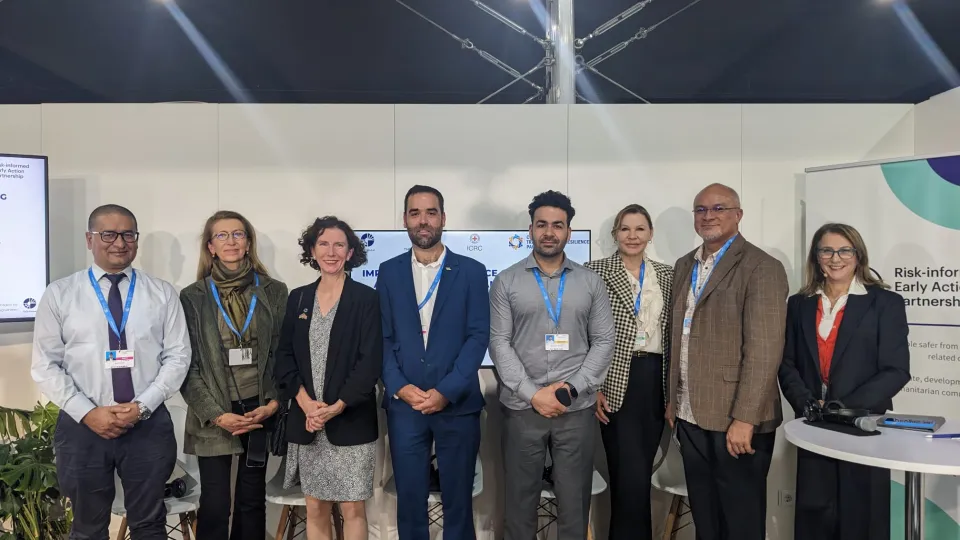
COP29: REFLECTIONS AND WAY FORWARD
Dubbed the ‘Finance COP’, the expectations for this year’s conference were significant. Start Network’s engagement in the lead up to and during COP29 reflected our values as a system change organisation.

Dubbed the ‘Finance COP’, the expectations for this year’s conference were significant. Start Network’s engagement in the lead up to and during COP29 reflected our values as a system change organisation.
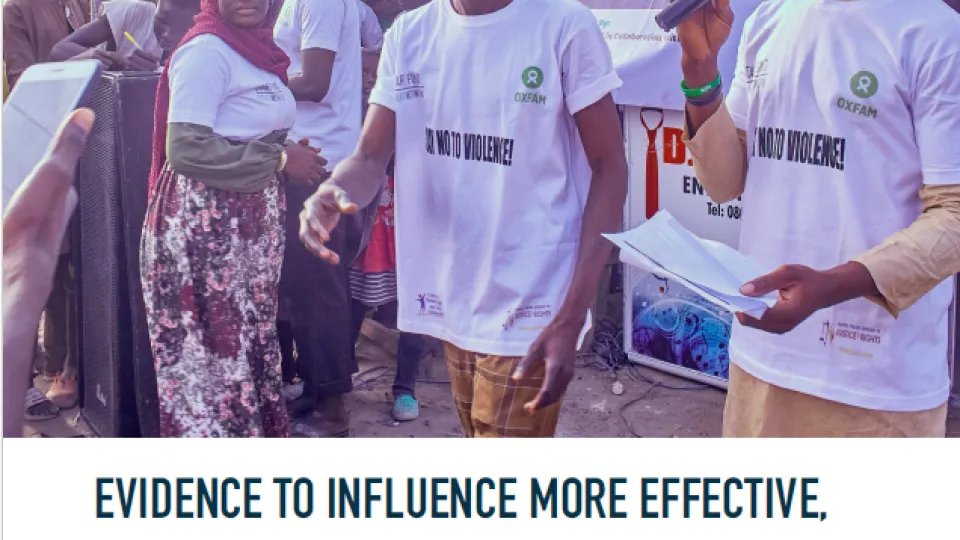
This report explores the existing evidence base and rationale for localisation to better understand how arguments for effectiveness, efficiency and equity in the localisation discourse are understood, evidenced and communicated.
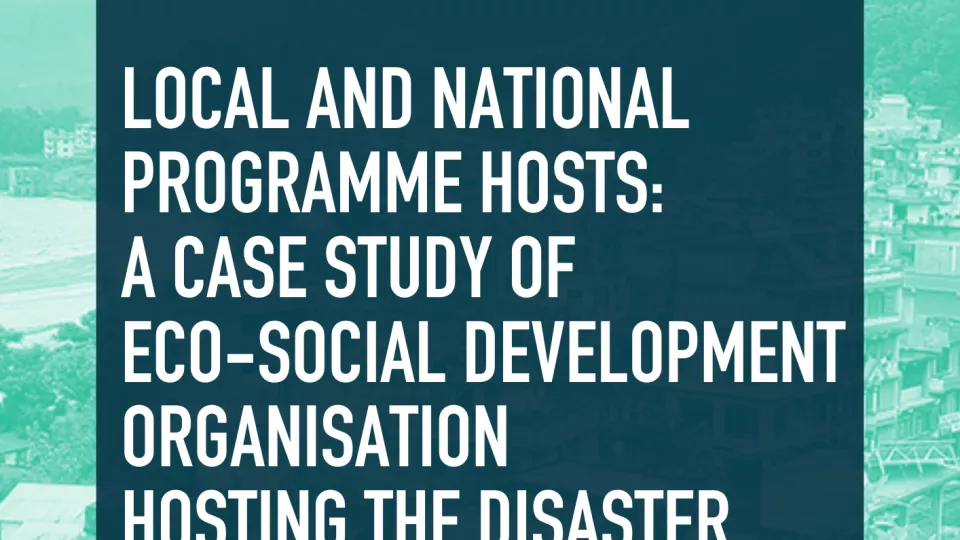
Start Network aims for a locally-led humanitarian system, and the transition is already underway through the development of networks (known as ‘hubs’). Start Network hubs are collectives of local, national, and international organisations or humanitarian responders operating in the same country or region. Hubs come together through a vision of system change, to tackle the deep-rooted issues in humanitarian responses within their contexts. They are supported by the Global Start Network but ultimately, they control their resources and define their responses to crises affecting and threatening their communities.
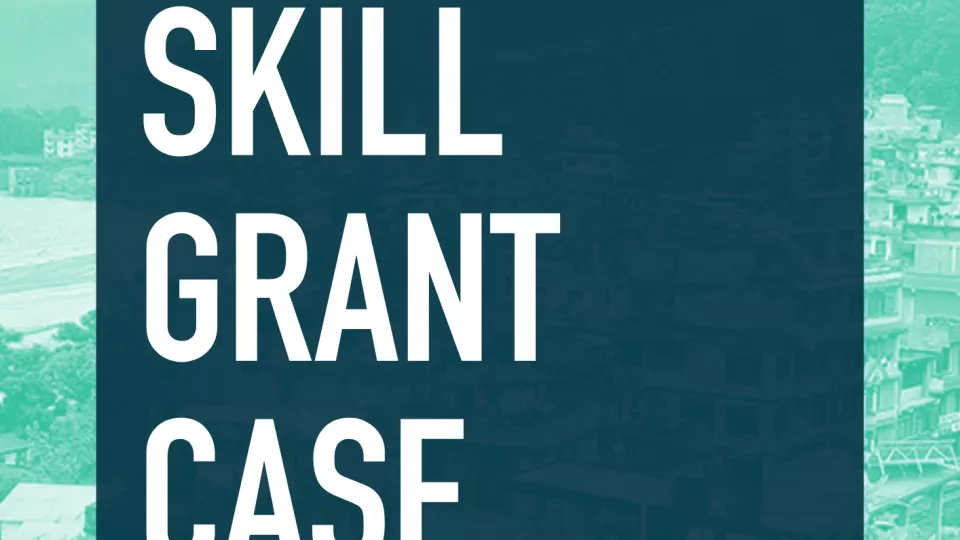
The Sharing Knowledge and Ideas under Local Leadership (SKILL) Grant was developed in 2021 so that Start Network’s local members could lead collaborative research projects and learn through partnerships. This document contains the case studies gathered during the grant.
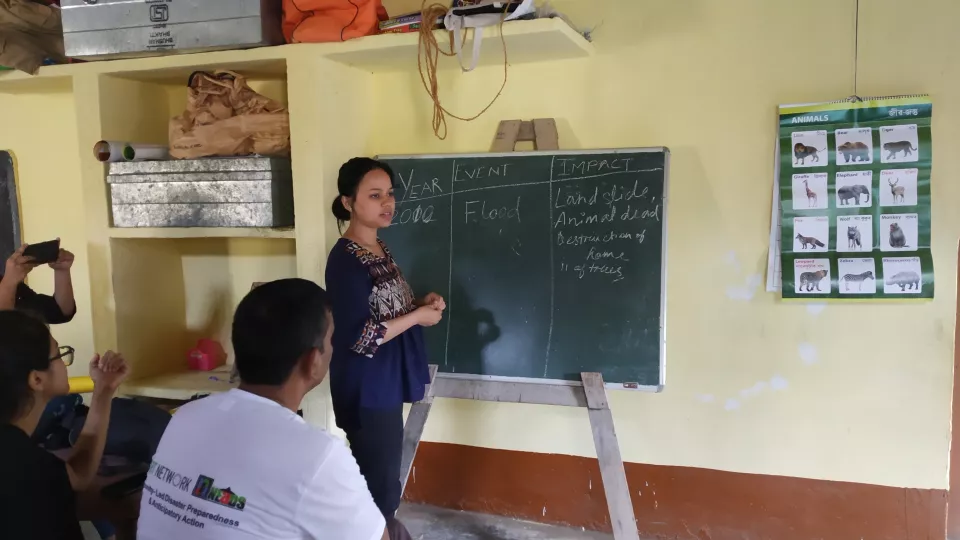
Start Network is launching the #StartLocal - a live repository that compiles examples of locally led work.
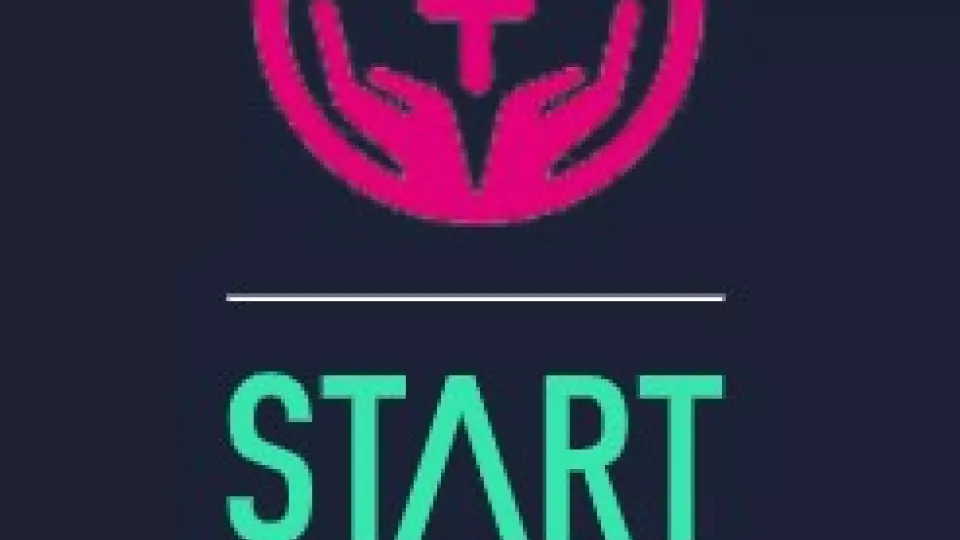
In January 2022 AFPDE was awarded Start Network’s Sharing Knowledge and Ideas Under Local Leadership (SKILL) Grant, to conduct a peer learning programme focused on a research project of their choosing. AFPDE connected with other local, national and international organisation as well as members of the community and local officials, to organise a series of research activities and explore community resilience in Nundu, Lemera and Ruzizi health zones of the DRC. This report is condensed from the full research report written by Bagula Amato, who was the consultant hired by AFPDE to lead the data collection and research analysis which captures the findings and recommendations from this work.
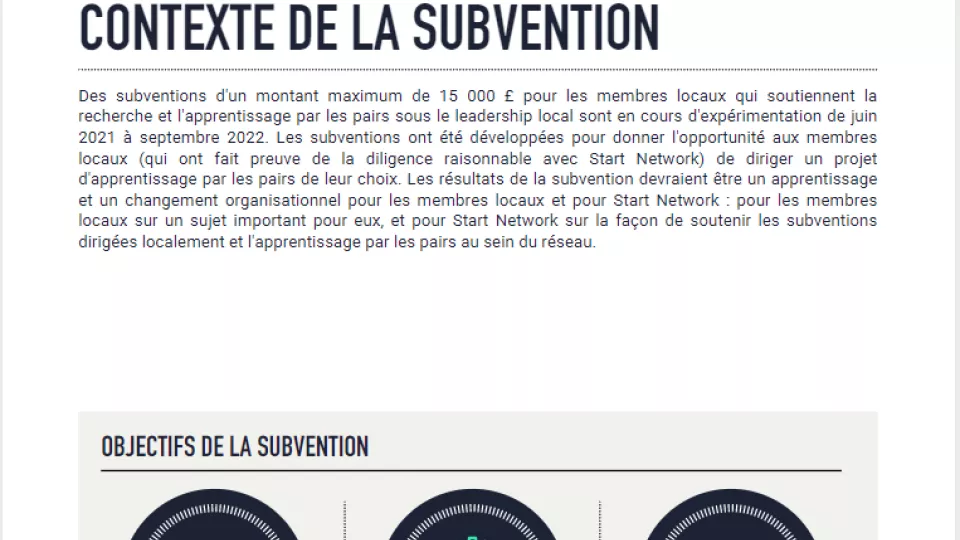
La subvention de partage des connaissances et des idées sous leadership local (SKILL) offre aux membres locaux l’occasion de diriger leurs propres projets d’apprentissage par les pairs. La subvention a été conçue pour être dirigée localement, avec le moins de procédures de demande et de rapports possible, et avec une flexibilité dans la conception et la mise en œuvre. Huit membres locaux (qui ont terminé tiered Due Diligence avec Start Network) utilisent des subventions SKILL depuis la fin de 2021. La subvention est actuellement en phase pilote. Download in English

Start Network has been working with various key stakeholders and partners to influence greater change in the humanitarian system. Support our G7 calls to action as we forward working closely with local actors for more sustainable humanitarian and anticipatory action.
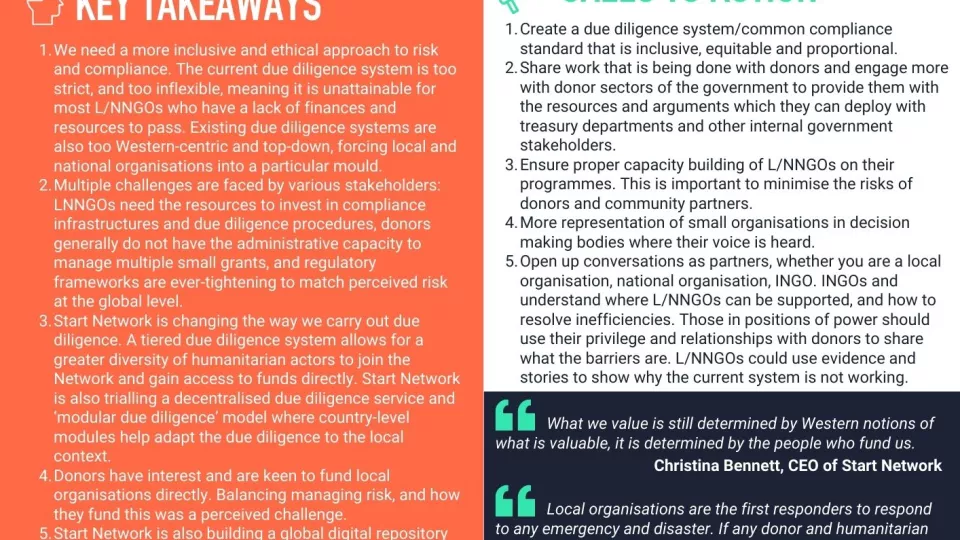
HNPW Session: Building an inclusive compliance landscape: Modular due diligence and a global digital repository Current due diligence frameworks are resource-heavy undertakings designed with large Western multinational organisations in mind, making it challenging for small local and national actors to meet and maintain the compliance infrastructure required.
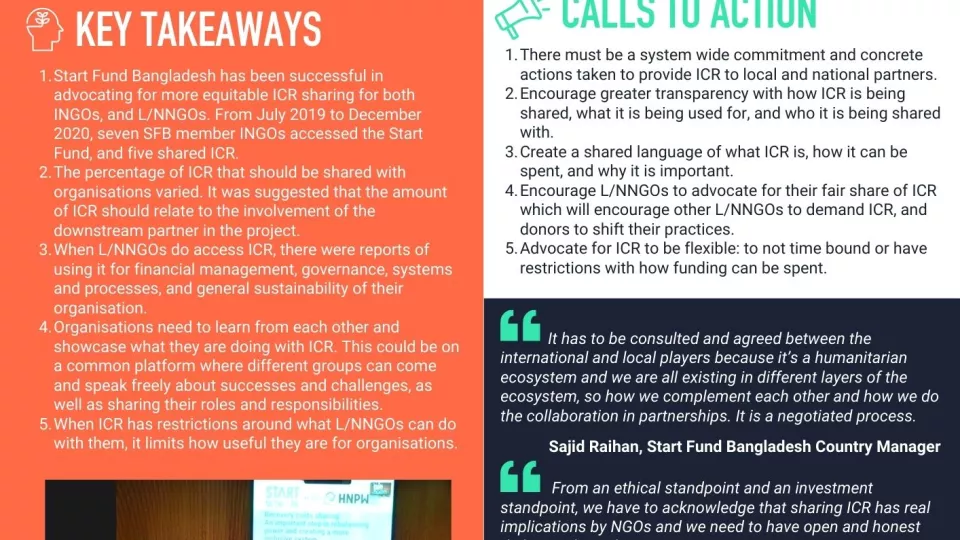
HNPW Session: Recovering costs sharing: An important step in rebalancing power and creating a more inclusive system This panel session explored indirect recovery costs (ICR) and how they are shared with local and national actors. It is important that these power inequalities are addressed as ICR sharing is a tangible step to have a better share of power and push toward a locally-led humanitarian system